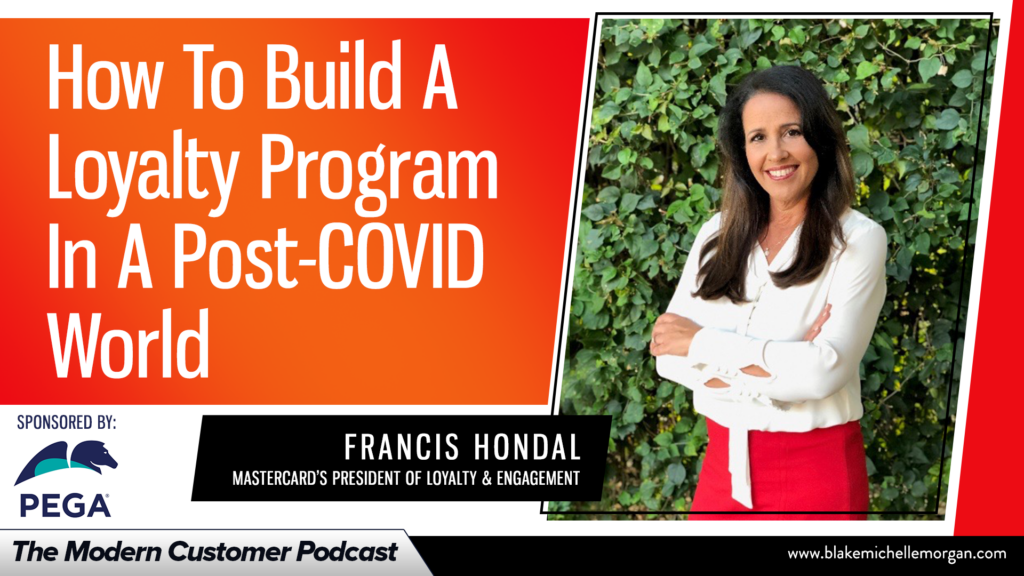Loyalty programs are an important part of many brands’ customer engagement strategies, but yesterday’s loyalty programs won’t necessarily be successful today.
According to Francis Hondal, President of Loyalty & Engagement at Mastercard, the recent growth of tech, digital commerce and data have redefined opportunities for brands to serve their customers in the way they expect to be served. Those opportunities have changed even more over the last year with the global COVID pandemic.
One of the biggest trends coming out of COVID is the un-calendarized year, meaning that everything has shifted from when it normally occurs. Things like sports seasons, events and travel are now happening on a different schedule than years past. In response, Hondal says brands need to focus on providing flexibility to their customers. The best loyalty programs adapt to meet customers’ current needs and offer them flexibility and choices.
Hondal gives the example of an airline that changed its rewards program to allow customers to use their airline loyalty points to buy groceries and support local businesses. With fewer people traveling, it was a way for the airline to stay connected to customers and for customers to meet their everyday spending needs with their existing points.
Customers crave optionality. They don’t want to be boxed into using a loyalty program in one certain way. Customers are hesitant to be stuck with just one way of doing things now that they’ve seen just how much the world and their personal situation can change. When brands are flexible, it drives long-term engagement and continues to make the company relevant, even during uncertain and chaotic times.
There are different ways of engaging with customers than typical rewards programs. Flexibility and newness are hot right now, and brands that can tap into those trends can build real connections with their customers.
Hondal says creating an amazing loyalty program starts by understanding consumers, both new and existing. Companies need to use data and have a strong data management system in place so they can stay on top of changing customer demands and trends. She says one of the most important pieces of delivering a seamless customer experience is connecting the dots within the company so that customers have a consistent experience and don’t have to repeat themselves.
In this COVID and post-COVID world of loyalty programs, brands need to focus on contextual connections with customers and connecting with people when it matters most. By truly understanding customers and knowing what they need and when they need it, brands can stay relevant and offer options and flexibility.
Loyalty programs aren’t what they used to be, especially after COVID. By leveraging data and focusing on flexibility and optionality, brands can create and strengthen bonds with loyal customers for years to come.
_______________
*Sponsored by Pegasystems #PegaWorld
It’s almost time for PegaWorld iNspire, the annual conference from Pegasystems. Join them online for free on May 4 from 9 a.m. – 11:30 a.m. Eastern Time to learn how the world’s most impactful companies are driving digital transformation. They’ll have compelling keynotes, demos, and case studies in a highly interactive virtual format and a few surprises as well. Go to www.pegaworld.com to register for free and check out the full agenda. I’ve attended the last several PegaWorlds in person, and virtual, and I can’t recommend it enough, so go register today! That’s www.pegaworld.com.
_________________
Blake Morgan is the bestselling author of The Customer of the Future. Sign up for her new course here.
For regular updates on customer experience, sign up for her weekly newsletter here.

